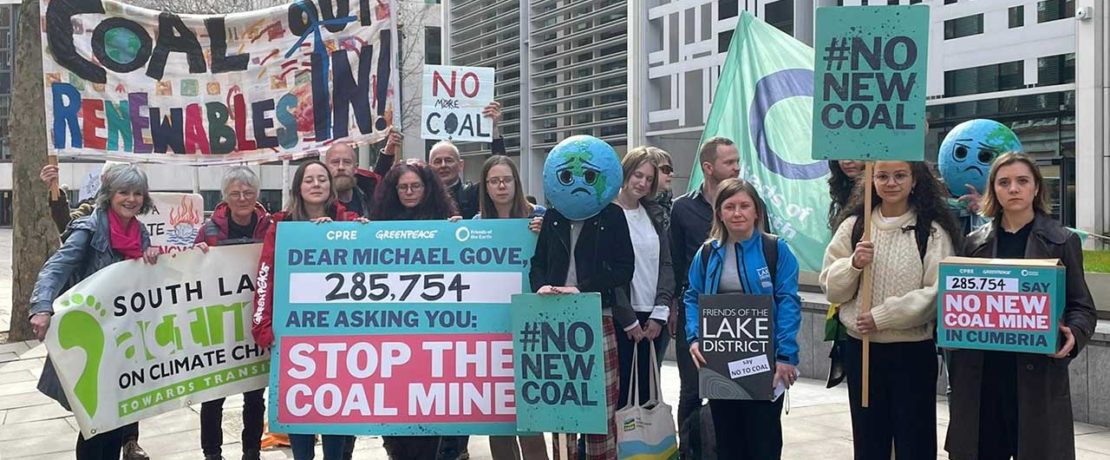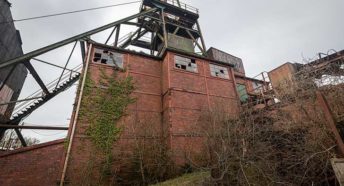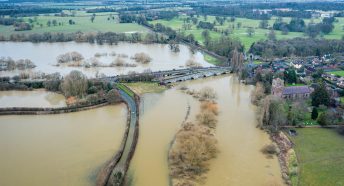Why we should keep fossil fuels in the ground and unleash rooftop solar
As legal battles around damaging fossil fuel sites rage on, the government continues to overlook a common sense first step towards net zero: the power of rooftop solar. As we await a potentially landmark Supreme Court ruling on fossil fuel developments, find out more about the context.
To say we are living through an environmental crisis is an understatement. From record temperatures to a devastating loss of wildlife, we have breached six of nine planetary boundaries risking irreversible damage to how our planet functions. An increasing and overwhelming body of scientific research makes it clear that human activity is driving severe environmental change, with fossil fuels the biggest culprit.
Time for a rooftop revolution
In the face of overwhelming evidence, we simply must end our fossil fuel addictions. While the government approves yet more dirty fossil fuel developments, the massive potential of rooftop solar continues to be overlooked. CPRE research, undertaken by the University College London (UCL), shows that there is enough roof space in England to meet more than half of our solar energy targets. Together with community-supported renewable schemes, it’s amazing what we can do when the will is there. From powerful nature-based solutions to ethical community solar, local communities and collectives are showing more commitment in tackling climate change than our current government.
Drilling our cherished landscapes
In the UK, there are approximately 95 existing onshore fossil fuel developments with around 19 embroiled in the planning or legal process. The fossil fuel age is still alive and kicking it would seem, particularly with the government announcing new mechanisms for companies to apply for oil and gas licences. At COP 28, world leaders congratulated themselves for finally listening to decades of evidence, and formally agreed the need to move away from fossil fuels. Here in the UK, it’s hard to believe the message has sunk in at all.
The climate change argument alone would be enough to denounce these damaging developments, but that’s only part of the story. At CPRE, we’re frequently contacted about oil and gas companies attempting to extract fossil fuels in our most precious landscapes. This includes an oil drilling site in Biscathorpe in the Lincolnshire Wolds Area of Outstanding Natural Beauty (AONB, now called National Landscape); Horse Hill in London’s Green Belt, and Balcombe in the High Weald AONB. From globally rare chalk streams to pristine and tranquil countryside, the impacts of these developments on wildlife and landscapes could be colossal. You’d be forgiven for wondering whether fossil fuel companies think beyond their bottom line when they decide where to extract their fuels from.
Trampling local democracy
Many of these developments follow a similar pattern. Local communities, rightfully concerned about the impacts, set up campaigns. Local authorities, seeking to represent their communities, object to the development on grounds of climate change, biodiversity and landscape impacts. And then the government steps in and overrules, forcing campaigners to raise huge sums of cash to mount a legal challenge. It begs the question: how effective can landscape protections and local planning democracy be if the government can so readily quash them?
The myths of bills and energy security
There are two often-given reasons for this. The first, is a ‘national need for fossil fuels’. Citing the conflicts in the Middle East or Ukraine, we’re told horror stories about energy security. We’re told that this is our ticket to lower bills. But many of these developments are unlikely to impact either. In sites like Biscathorpe, there are no guarantees that the oil wouldn’t be exported and that’s not to mention that the amount of oil extracted over 15 years might power the UK for just two days. Most fossil fuel operations are driven by private interests, with fuels sold on the international market. And on household bills, the government’s energy secretary admitted that these developments won’t bring bills down, so little else needs saying on that.
The second reason surrounds the idea of ‘transition fuels’. The idea that somehow, fossil fuels are still needed in the move towards net zero. While fossil fuels may form a tiny portion of our energy mix by 2050, the Climate Change Committee has made it clear that new licences for fossil fuels are at odds with the UK’s climate goals and commitments. Gas might be cleaner than other fossil fuels, but it’s still a fossil fuel. Any argument about the cost of gas can be quickly rebutted with the fact that renewable energy has never been cheaper.
The burning question
As part of the planning process, developers must conduct an Environmental Impact Assessment (EIA), to assess any embedded environmental impacts. While emissions caused by building and on-site operations are included, emissions caused by burning the fossil fuels further down the line are not. These are known as ‘scope 3’ or ‘downstream’ emissions.
This means that fossil fuel companies have no accountability for the emissions caused by the fossil fuels once they’re sold. This has formed the basis for a monumental legal challenge with the Horse Hill site at the centre. An expansion is planned here which could produce more than 10m tonnes of carbon dioxide equivalent (CO2e), and local campaigners have made a strong legal case that these emissions should be incorporated into EIAs. This awaits ruling at the Supreme Court.
A reason to be hopeful
Should the Supreme Court rule in favour of local campaigners, this could dramatically transform how fossil fuel developments are assessed. It would impact many other developments entangled in legal challenges, including the deep coal mine in Whitehaven, Cumbria. Other campaigners are now arguing similar cases in their local areas.
We can no longer ignore the fact that this environmental crisis is snapping at our heels, from the risk of floods and impacts on UK food security. For the sake of our countryside, our communities and our planet, we need to act now. To quote the indigenous educator Leona Prince, the time has come to be good ancestors. Let’s keep fossil fuels where they belong – in the ground.









